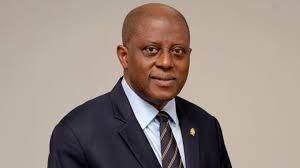Nigeria recorded a strong rise in foreign capital inflows in the first quarter of 2025, attracting a total of $5.64 billion. The latest capital importation report released by the National Bureau of Statistics (NBS) showed that the banking sector accounted for more than half of the inflows, confirming its place as the leading driver of investor confidence in the economy.
The data revealed that banks pulled in $3.1 billion, representing 55.44 percent of the total capital inflows. This made the sector the top destination for foreign investors during the quarter under review. The financing sector followed with $2.09 billion, or 37.18 percent, while the manufacturing sector came third with $129.9 million, representing 2.3 percent.
The Q1 2025 result marked a major improvement compared to the same period in 2024. Capital inflows grew by 67.12 percent from the $3.38 billion recorded in the first quarter of 2024. It also represented a 10.86 percent increase compared to the $5.08 billion posted in the last quarter of 2024.
A breakdown of the report showed that portfolio investments dominated the inflows, contributing $5.2 billion, or 92.25 percent of the total. “Other investments” accounted for $311.17 million, representing 5.52 percent, while foreign direct investment (FDI) trailed with $126.29 million, just 2.24 percent of the total inflows.
The United Kingdom remained the largest source of capital inflows to Nigeria. Investors from the UK brought in $3.68 billion, which represented 65.3 percent of the total figure.
Analysts and industry experts have linked the positive numbers to ongoing reforms by the Central Bank of Nigeria (CBN). Since assuming office in October 2023, CBN Governor Olayemi Cardoso has introduced major policies such as unifying the currency market, clearing a $7 billion foreign exchange backlog, and reducing direct intervention in the forex market. These efforts have been praised by international investors and development partners.
The reforms have boosted investor confidence, with Nigeria’s sovereign risk spread recently falling to its lowest point since January 2020, a development that erased the premium placed on the country’s debt during the COVID-19 pandemic.
In its commentary, the NBS noted that “the reforms are strategic efforts designed to woo investors and maintain strong capital inflows into the economy.”
Afrinvest West Africa Limited also highlighted the significant increase in portfolio inflows, which rose by 150.8 percent year-on-year to $5.2 billion. Money market instruments attracted the highest share, jumping 162.2 percent to $4.2 billion. Bonds also saw a rise of 108.5 percent to $877.4 million, while equities gained 137.7 percent to reach $117.3 million.
Experts believe that the growth in capital inflows will put more focus on the recapitalisation drive in the banking sector. The Central Bank has repeatedly stressed the need for stronger banks to sustain investor appetite and support the Federal Government’s target of growing Nigeria’s economy to $1 trillion by 2030.
Speaking on the matter recently, Governor Cardoso said: “Will Nigerian banks have sufficient capital relative to the financial system’s needs in servicing a $1 trillion economy in the near future? In my opinion, the answer is no—unless we take action.”
The capital importation figures also came shortly after the rebasing of Nigeria’s Gross Domestic Product (GDP) by the NBS. The rebased data showed that Nigeria’s nominal GDP rose from N205.1 trillion in 2019 to N372.8 trillion in 2024. According to the Statistician-General of the Federation, Adeyemi Adeniran, rebasing is about producing accurate and timely data to support better policy and economic planning.
Economists say the rebasing exercise, coupled with banking-led inflows, shows that Nigeria is positioning itself as a more attractive investment destination. However, they warn that government must back up statistical progress with real policies that improve infrastructure, security, and manufacturing capacity.
Development economist Dr. Aliyu Ilias explained that the rebasing captured previously excluded sectors such as entertainment and technology, making Nigeria’s economy appear stronger on paper. Another economist, Nelson Adedeji, however, noted that “statistics alone cannot improve the lives of Nigerians. The Tinubu administration must implement policies that make growth inclusive.”
Looking ahead, financial analysts believe 2025 will be a better year compared to the economic hardship experienced in 2024. Chief Executive Officer of Financial Derivatives Company, Bismarck Rewane, predicted that “2025 will be less hard, less painful, and less difficult than the previous year.” He cautioned, however, that success depends on implementing reforms in the right order and addressing key challenges in the power, oil, and gas sectors.
As Nigeria works towards its ambition of becoming a $1 trillion economy by 2030, the challenge for policymakers will be how to translate short-term investor confidence into long-term sustainable growth that benefits all citizens.
